Science Project Ideas for Montessori
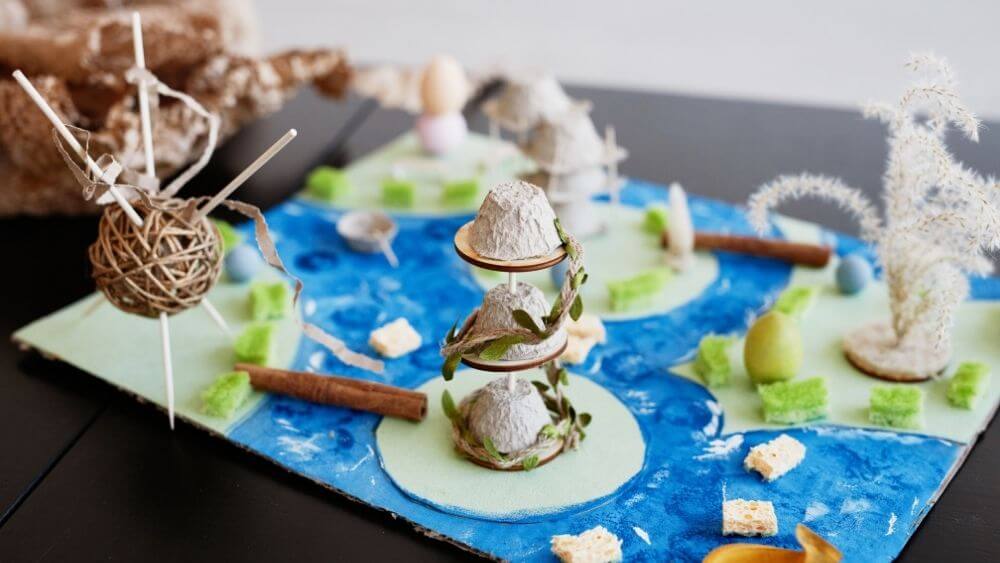
We love making engaging and compelling science experiments for children to use in classrooms and homeschool environments. We always say that the lesson is only the beginning, but it’s important to recognize that the experiment doesn’t have to be the final destination! That’s why it’s important to create space in your learning environment for children to explore different science project ideas. In Montessori, children are accustomed to going deeper with lessons to further investigate topics of interest. The experiments are just one way of demonstrating mastery and understanding. The following are other ways in which your learner can extend their studies:
Table of Contents
- Create a Poster
- Create a Model
- Make a Booklet
- Write a Research Report
- Try Montessori Laboratory’s Science Project Ideas
- Write a Biography
- Design Their Own Experiment
- Present Their Work!
- Final Thoughts
Create a Poster
Posters are one of our favorite science project ideas for elementary children because they love doing big things, and posters represent “big work.” Your learners can create a solar system poster, a states of matter poster, a layers of the earth poster, and more!
Posters usually contain a visual component and a written component. The visual component can include:
- Hand-drawn illustrations.
- Images cut from magazines.
- Images printed from online sources.
The written component can include:
- For younger children: writing sentences onto sentence strips then gluing them onto the poster.
- For older children: writing paragraphs onto index cards or other kinds of paper and fastening them to the poster.
While children can write directly onto the poster, it’s a great idea to have them assemble and compose the images and the words first. Then they can secure them once they have a vision of how the arrangement looks best to them. This helps them develop a sense of aesthetics, too!
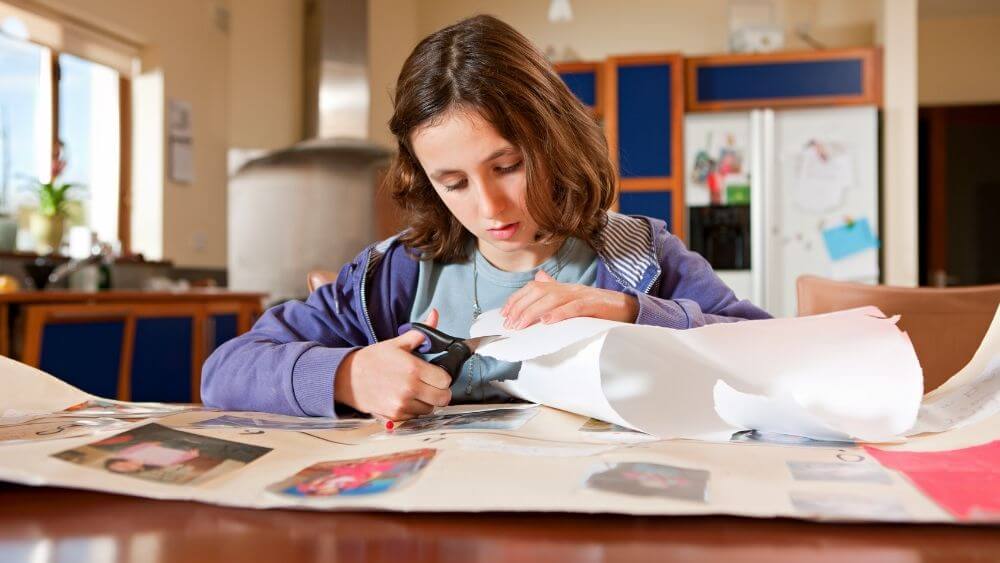
Create a Model
Elementary children not only love engaging in “big work,” they also love to create three dimensional representations! There are so many ways in which children can make 3 dimensional models that show their learning. Here is a list of a few ideas that are popular with elementary-aged students:
- Dioramas: Children often make dioramas from shoe boxes. They love to create scenes based on illustrations, videos, or their own imaginations! They can use paint, clay, colored paper, and a variety of collage material. Their dioramas can depict a habitat, the solar system, the water cycle, and more!
- Sculptures: Clay, sand, paper, wire, plaster … there are numerous options for creating a sculpture! Children might want to create a sculpture of a river model or the layers of the earth to name a few.
- Salt and flour relief maps: Elementary-aged children love to make three dimensional salt and flour relief maps of their state, or of another region in the world. They love to create them, watch them dry, paint them, and label them. This is one of those science project ideas that can keep them involved for a long time!
- 3D paper crafts: While you can do a lot with paper as a flat surface, there are even more science project ideas that can be done with paper involving three dimensional products! All you have to do is look up 3D paper crafts on Google or Pinterest (Pinterest is a particular favorite!). You will find endless ideas. And if you’re a teacher or parent who feels a bit reluctant to get into this kind of work because you don’t consider yourself “crafty,” you can show the children these ideas and most of them will be able to go about implementing them without your help!
Make a Booklet
Young elementary children in particular love to create booklets that contain a sentence or a paragraph of information on a page along with an illustration. They love having a colorful book cover to decorate using gel pens, markers, sequins, and more. They especially love to learn the variety of bookbinding techniques that often involve yarn or embroidery. If you have never done this with children, you can do a search on youtube for “bookbinding for kids.”
Write a Research Report
Older elementary children can move beyond simple booklets to full fledged research reports, complete with multi-paragraphs, topic sentences, transitions, and more! They might want to learn more about crystallization, or the elements, or the earth and the sun. The Montessori Laboratory science lessons are key lessons that spark the child’s interest and give them an understanding of how the world works. These lessons give them essential foundational knowledge in various scientific topics, and they will build upon this knowledge to go both deeper and wider in their investigations. Supporting students in writing a research report that goes more in depth into areas of science will not only augment their knowledge, but will also help them build their writing skills! This integration of science and writing is a perfect example of the connections that happen all throughout Cosmic Education.
Try Montessori Laboratory’s Science Project Ideas
Are you interested in seeing what Montessori Laboratory’s big-picture lessons, hands-on experiments, and engaging science activities are all about? Check out the free lessons below!
The First Great Lesson
Where did the stars come from? And the Sun? How was our Earth created? And what about the rest of…
Combining and Separating
Why does sand settle to the bottom of the ocean, but salt mixes in? How do people get sea salt out…
How Did Humans Discover Fire?
When did we start using fire? What 3 components does fire need to burn?
Write a Biography
Elementary children love heroes, and in fact, one of their psychological characteristics as identified by Maria Montessori herself is “hero worship.” This simply means that elementary children want to learn about people who have or are currently doing unique and innovative things, or who are contributing to a cause and making a difference in the world. What better way to get them interested in science than to introduce them to famous scientists, both in the present and those from long ago?
Who first made the claim that the earth revolved around the sun, rather than the other way around? Who discovered the elements? These are the questions that they will find the answers to while learning about their new favorite hero.
When you suggest a biography as a science project idea, it is also a great time to point out that there are some scientists who did not originally get credit for their work. There are many women and people of color who did not get the spotlight they deserved for their discoveries, but who are finally being recognized now.
Design Their Own Experiment
Many of the Montessori Laboratory experiments include extensions where children get to experiment more in depth with the topic. A natural progression can also be for children to design and conduct their very own experiments using the scientific method! This is one of those science project ideas that is particularly great for older children as they are often ready and excited to dive further into the experiments they have already performed.
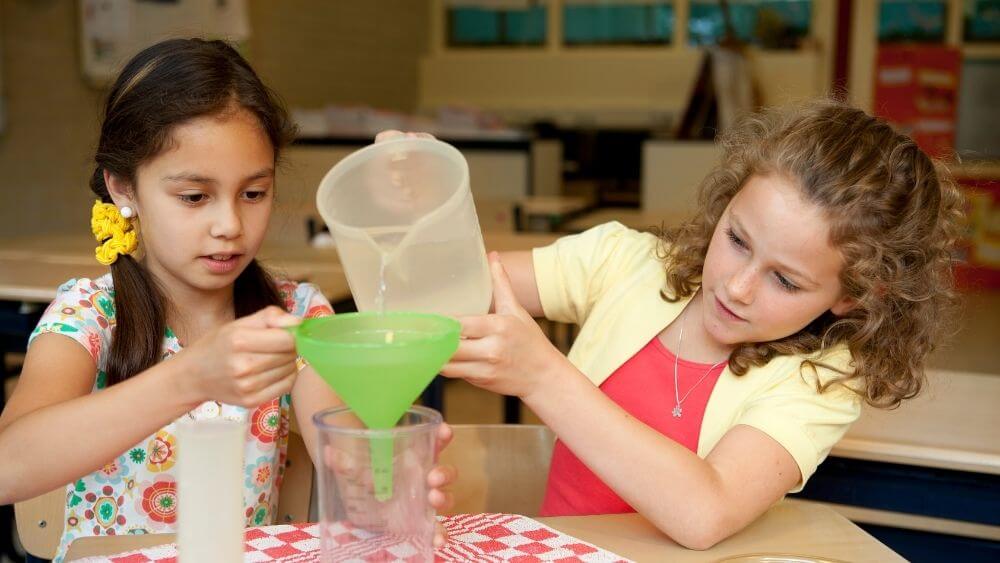
Present Their Work!
Everyone who spends any amount of time with elementary children knows that they want to share their newfound knowledge. They enjoy creating projects and representations of their learning that they can put on display and share with others.
If you are a teacher, be sure to offer opportunities for students to share their work! You can even put them into small groups and have them share with a small audience. The small audience helps keep everyone’s attention and engagement. Or, you can have special events where parents can come and watch their children present.
If your child is homeschooling and you have a homeschool community, you could reach out to them and organize a “student showcase,” or “presentation day.” Students can present to the other parents, and to each other as well. They could even present online to one another!
The opportunity to present hones children’s oral presentation skills, which will help them as they get into the adolescent years. Eventually, these science project ideas will turn into science fairs and other events calling for more formal, polished presentations.
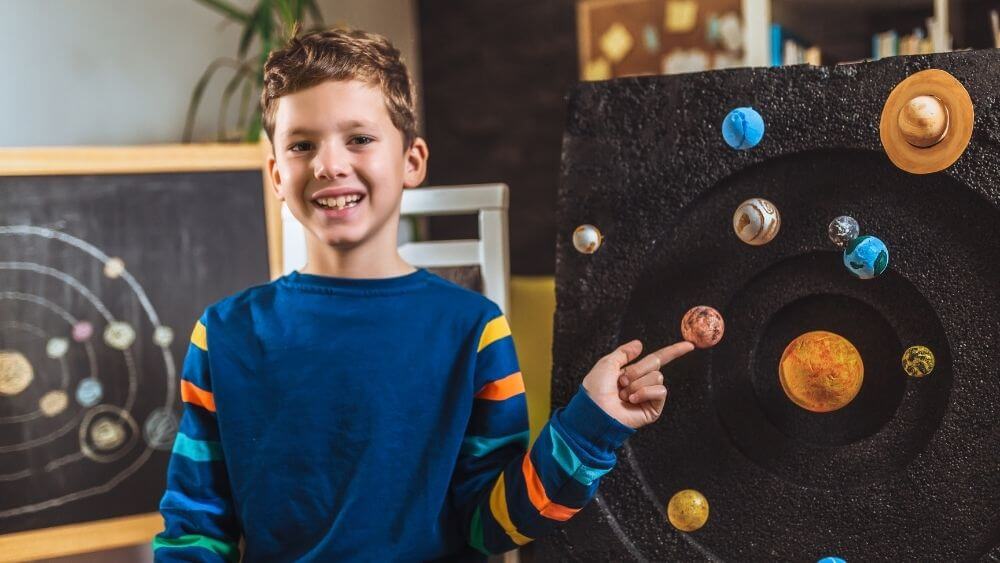
Final Thoughts
As you can see, there are numerous directions that learners can go in that will keep their minds busy and their hands active. Follow up activities extend the experience for the learners, thus further cementing and integrating the knowledge that they attained. Science experiments are the practical life of the elementary child, and a highlight of scientific learning for children of this age. Using the science experiments for learning acts as a jumping off point for even more active learning. Science projects encourage children to construct themselves, and they give them the confidence and skills to pursue their scientific interests to the fullest.
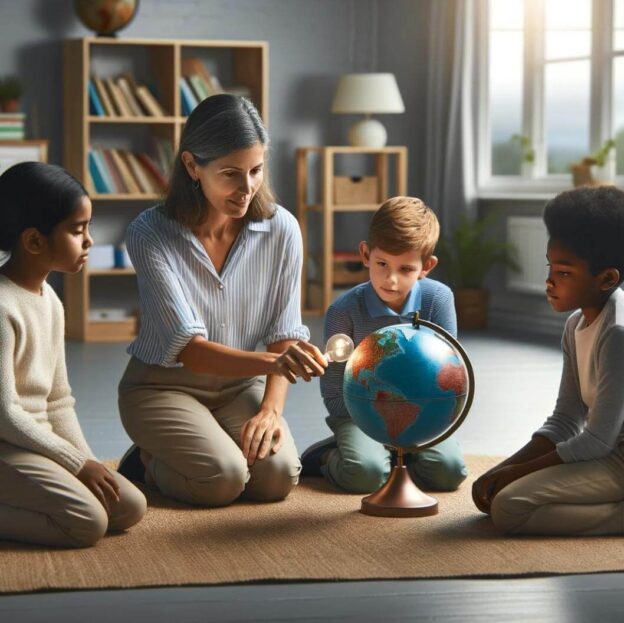
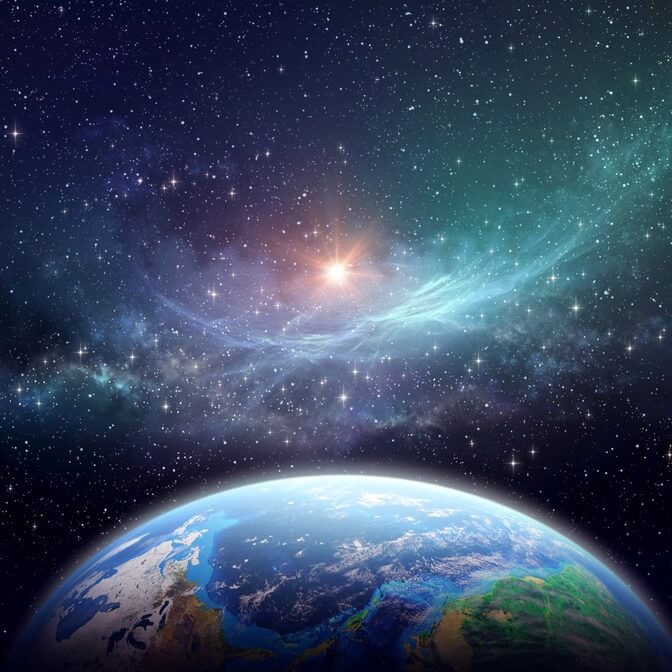
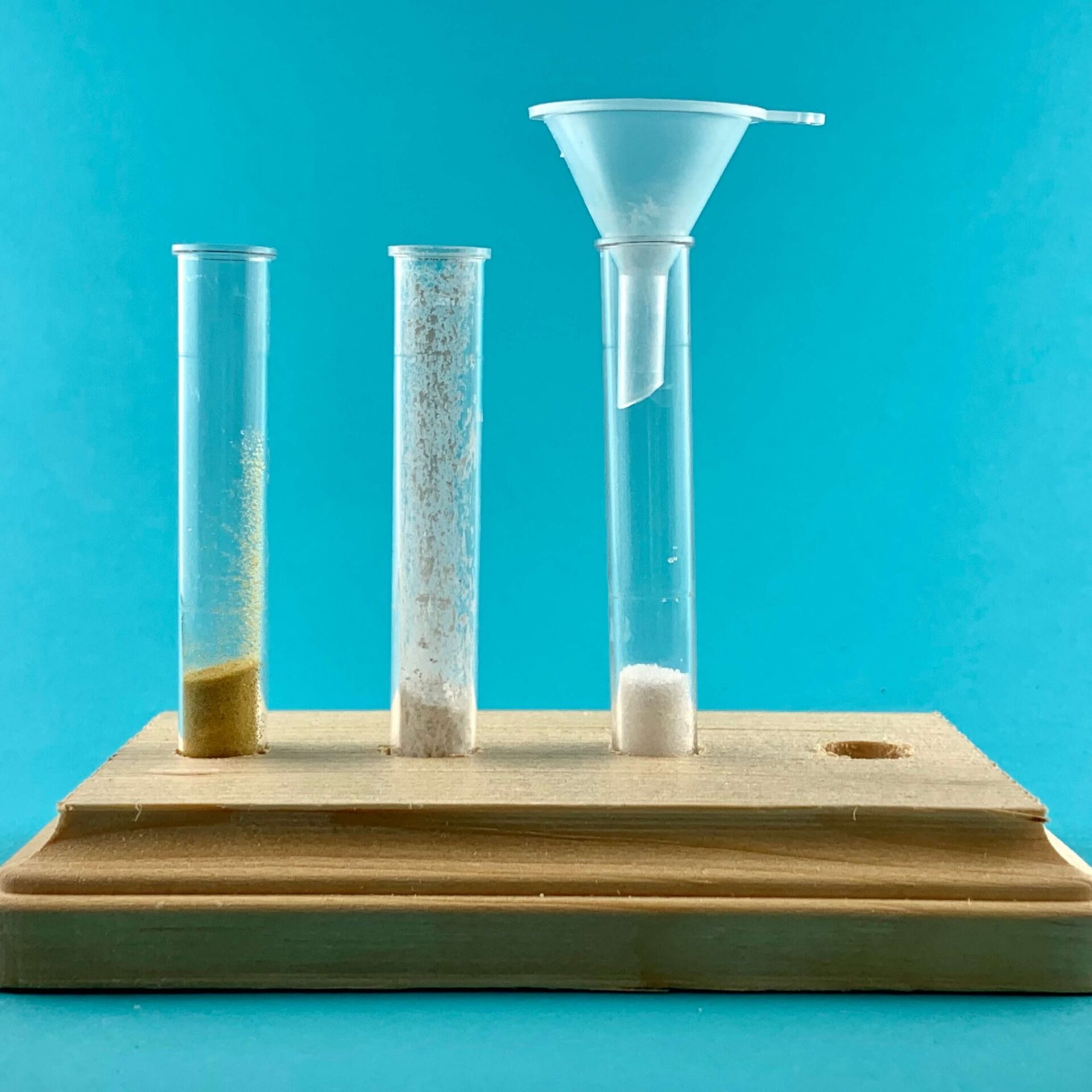
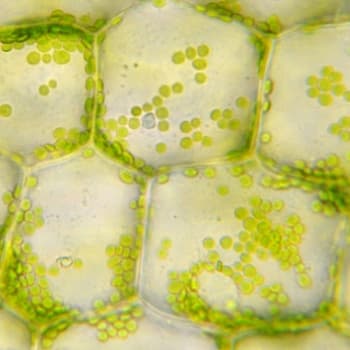

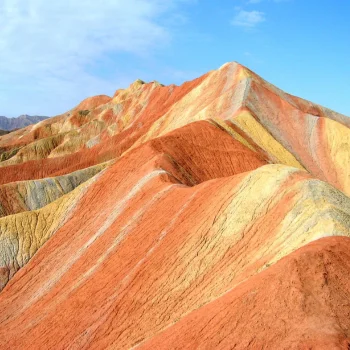
Responses